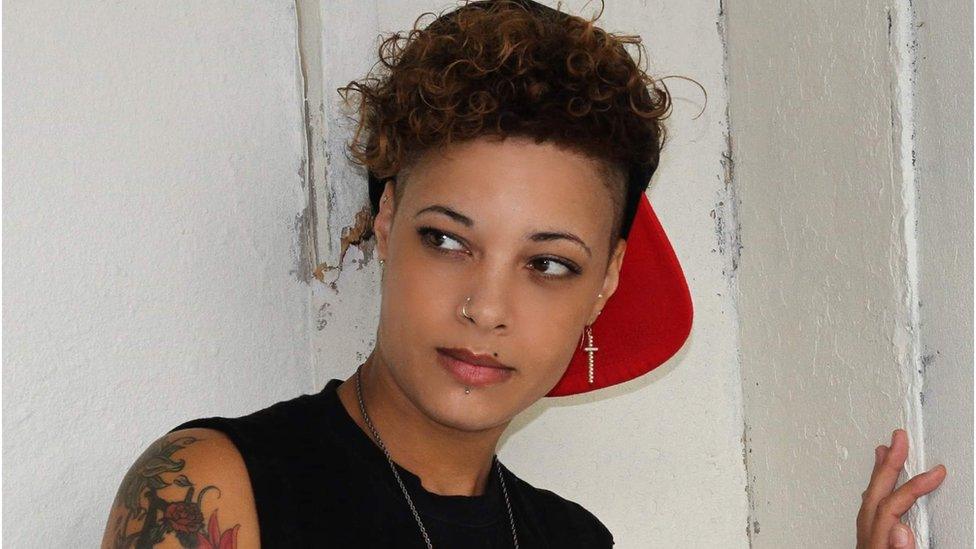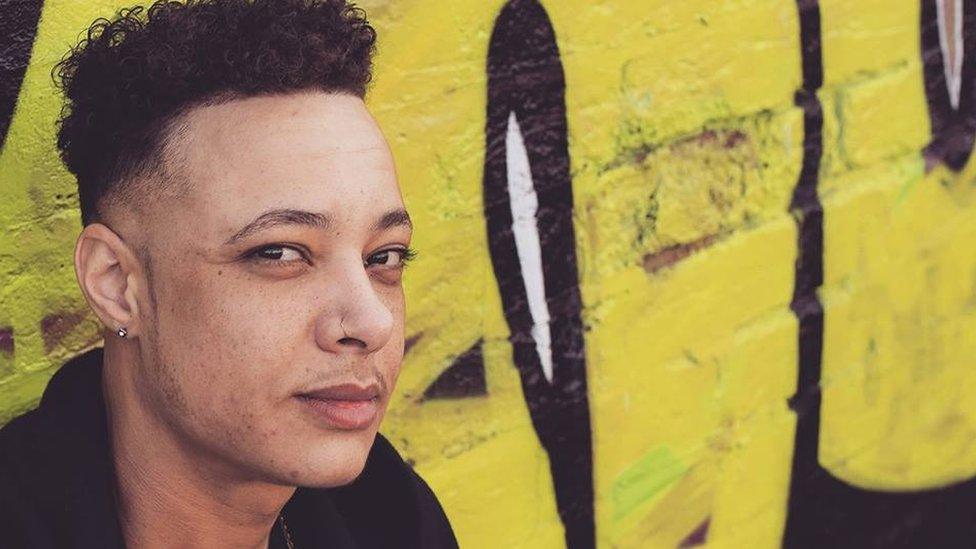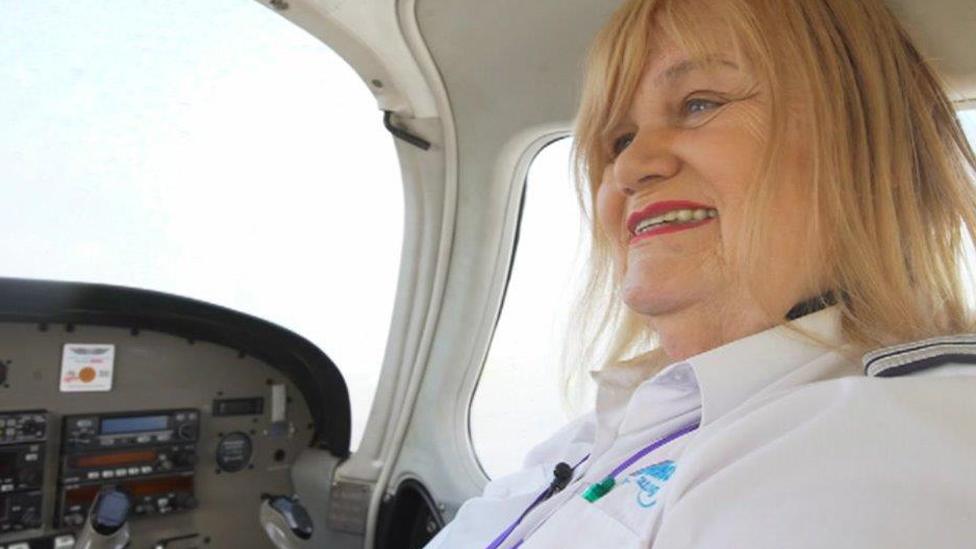'Grime should embrace transgender'
- Published
Nate Ethan Watson says he first understood he was "meant to be a boy" aged four
Rapper Nate Ethan Watson is nine months into his transition from female to male. He tells Victoria Derbyshire he believes he is the UK's first transgender grime artist, but struggles to believe there are no others.
"Grime should be ready to embrace trans," he says. "It's been long overdue for everybody, not just in grime, to accept people like me."
Previously known as N'Chyx, the rapper and lyricist has spent a decade in the industry and performed with the likes of D Double E and Tim Westwood.
He says: "I now identify as a heterosexual male. I feel so much more comfortable compared with before when I was called a lesbian by people."
Nate is noted as one of only a few LGBT performers in grime, but he says currently he is the only transgender artist in the genre.
"I remember being told to 'hold back your manly mannerism' and when performing 'not perform too much like a man'".

Nate, pictured with Dappy, says he does not mind if he experiences a backlash
Historically, there has been low representation of LGBT and transgender artists in mainstream grime.
"I think there are a lot of grime artists who identify as LGBT but keep their sexuality hidden. I struggle to believe I am the only trans rapper in grime."
Nate says he stands out in an industry often associated with prejudice towards people who are different. Last year, grime star Stormzy was forced to apologise after homophobic tweets he had written when he was younger emerged.
In a statement, Stormzy said the comments he made were "unacceptable and disgusting, full stop... these are attitudes I've left in the past."
Nate, 34, from Wolverhampton, who is still undergoing treatment, says he is expecting a backlash for coming out.
"I am even worried that some artists won't want to work with me because of my transition. But I am quite confident in who I am. So I don't really mind."
Gender dysphoria

Nate is nine months into his transition
Nate says he has identified as male since the age of four, telling his friends in the playground that he was a boy.
"I always told people I was a boy without genitals. I was six or seven when I was labelled a lesbian in the playground. But I did not know what that was."
Growing up, he would be abused on the street as he was known as a lesbian in school, despite not viewing himself as such.
Nate says he would often get into fights as he also battled with his appearance.
"This affected my mental health and led to challenging behaviour as I felt I couldn't tell my friends or family about my gender," he says.
"I struggled with gender dysphoria which caused problems in my relationships. But it wasn't until I was 27 that I started researching the condition and realised it was normal for me to experience the feelings I was going through."
He remembers his first appointment with a doctor who told him it was, "OK to be a happy lesbian". He eventually changed doctors and was referred for psychological assessment.
"I have been waiting for three years to have my first consultation and have started treatment privately and I'm now nine months into my transition," he says.

Nate says his family has been very supportive
'Suicidal thoughts'
Nate says he had felt embarrassed about speaking to his family about wanting to be a boy and he was worried about how they would react.
"But they were really supportive. It wasn't a surprise for them at all. It's so emotional how much people have supported me.
"I feel like I have had a lot of support. I am building a bridge to bring people together. I refuse to be labelled. I want to cross boundaries."
Nate says he strongly believes LGBT lessons should be taught in schools but that it needs to be done properly, with parents involved in the process. He says it would have stopped him from feeling isolated during his childhood and teenage years.
"If someone had told me I am not the only one with the feelings I was going through I probably wouldn't have had all the suicidal thoughts that I had all my life," he says.
"My only regret is not having access to information I found on the internet when I was younger."

Follow the BBC's Victoria Derbyshire programme on Facebook, external and Twitter, external - and see more of our stories here.
- Published4 April 2019

- Published13 January 2016
